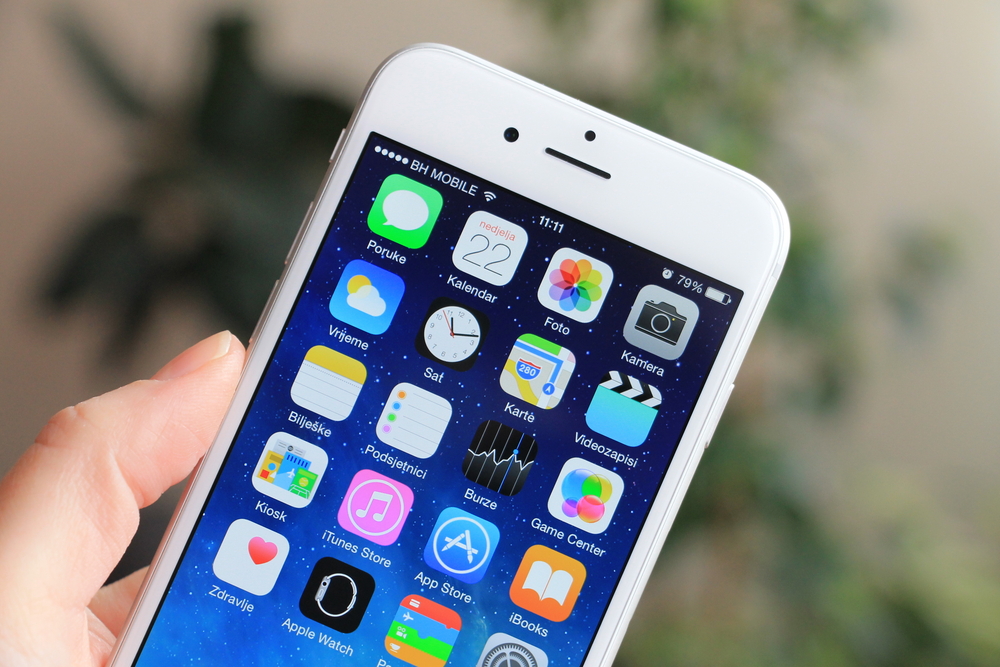
The Mobile App Revolution
In our increasingly digital world, mobile apps have become an integral part of our lives. From social media to shopping and productivity tools, mobile apps have transformed the way we interact with technology. However, with millions of apps available in various app stores, competition is fierce for developers trying to capture the attention of users. This is where mobile App Store or Google Play app marketing comes into play.
Why is Mobile App Marketing Important?
Creating a well-designed and functional mobile app is just the first step. Without effective marketing strategies, it's unlikely that your app will gain the recognition it deserves. mobile Google Play or App Store app marketing is crucial in order to reach your target audience, increase downloads, drive user engagement, and ultimately generate revenue.
Top Tips and Tricks for Maximum Promotion
1. Define Your Target Audience
Before diving into any marketing efforts, it's essential to clearly define your target audience. Who are the people most likely to benefit from and enjoy using your app? By understanding their demographics, interests, and behaviors, you can tailor your marketing campaigns to effectively reach and engage them. Conduct market research, analyze competitor apps, and gather user feedback to develop a detailed profile of your ideal users.
2. Optimize Your App Store Presence
With millions of apps available, app store optimization (ASO) is vital to ensure your app stands out. Begin by crafting a compelling app title and description that accurately conveys the app's unique value proposition. Include relevant keywords throughout your app's description to improve its visibility in app store search results. Don't forget to use eye-catching icons, screenshots, and videos to showcase your app's features and functionality.
3. Leverage Social Media
Tap into the power of social media platforms to promote your mobile Android or iOS app . Create engaging content that highlights the app's benefits, features, and updates. Share user testimonials, success stories, and videos to build credibility and generate buzz. Utilize social media advertising to target specific user demographics and reach a wider audience. Encourage user-generated content by running contests or campaigns that incentivize users to share their experiences with your app.
4. Implement Influencer Marketing
Influencer marketing can be a powerful tool to increase app visibility and credibility. Identify influencers in your app's niche who have a relevant and engaged audience. Collaborate with them to create sponsored content or offer free access to your app for review. This can help generate organic buzz, create social proof, and drive downloads. Always ensure that the influencers align with your app's values and target audience.
5. Offer Incentives and Referral Programs
Encourage user engagement and motivate app downloads by offering incentives and referral programs. Providing discounts, exclusive content, or even virtual rewards can incentivize users to try your app and share it with their friends. Referral programs, where users are rewarded for recommending your app to others, can also be highly effective in increasing your user base.
6. Track and Analyze Performance
To optimize your mobile app marketing efforts, it's crucial to track and analyze its performance. Utilize analytics tools to monitor user acquisition, engagement, and retention rates. Analyze user feedback, reviews, and ratings to identify areas for improvement and address user concerns. This data-driven approach will help you refine your marketing strategies and enhance the overall user experience.
Frequently Asked Questions
1. How long does it take to see results from mobile app marketing?
The timeline for seeing results from mobile iOS or Android app marketing varies based on various factors such as competition, app category, marketing strategy, and target audience. While some apps may experience a sudden spike in downloads, it's important to have a long-term marketing plan to ensure sustainable growth.
2. What are the most effective social media platforms for mobile app marketing?
The choice of social media platforms depends on your app's target audience. Facebook, Instagram, Twitter, LinkedIn, and YouTube are popular platforms for mobile app marketing. However, conducting market research and understanding your target audience's preferences can help you identify the most effective platforms to engage with your users.
3. How can I measure the success of my mobile app marketing campaigns?
Measuring the success of mobile app marketing campaigns can be done through various metrics such as app downloads, user engagement, retention rates, and revenue generated. Utilize analytics tools like Google Analytics or in-app analytics to track and monitor these metrics. Regularly analyze the data to identify trends, make data-driven decisions, and optimize your marketing strategies.
4. Can I do mobile app marketing on a limited budget?
Yes, mobile app marketing can be done effectively on a limited budget. Utilize free or low-cost marketing channels like social media, content marketing, and email marketing. Focus on targeting specific user segments to maximize the impact of your limited resources. Additionally, building organic traction through positive user reviews and word-of-mouth can significantly reduce your marketing expenses.
5. Is it necessary to hire a professional marketing agency for mobile app promotion?
While hiring a professional marketing agency can provide expertise and resources, it's not always necessary. Many app developers have successfully promoted their apps on their own by leveraging online resources, tutorials, and self-learning. The key is to stay informed about the latest trends and best practices in mobile app marketing and constantly adapt your strategies to fit your app's needs.
Other useful resources
- https://en.wikipedia.org/wiki/Mobile_app_development
- https://www.appguru24.com/promote-ios-app/
- https://www.appguru24.com/android-app-promotion/